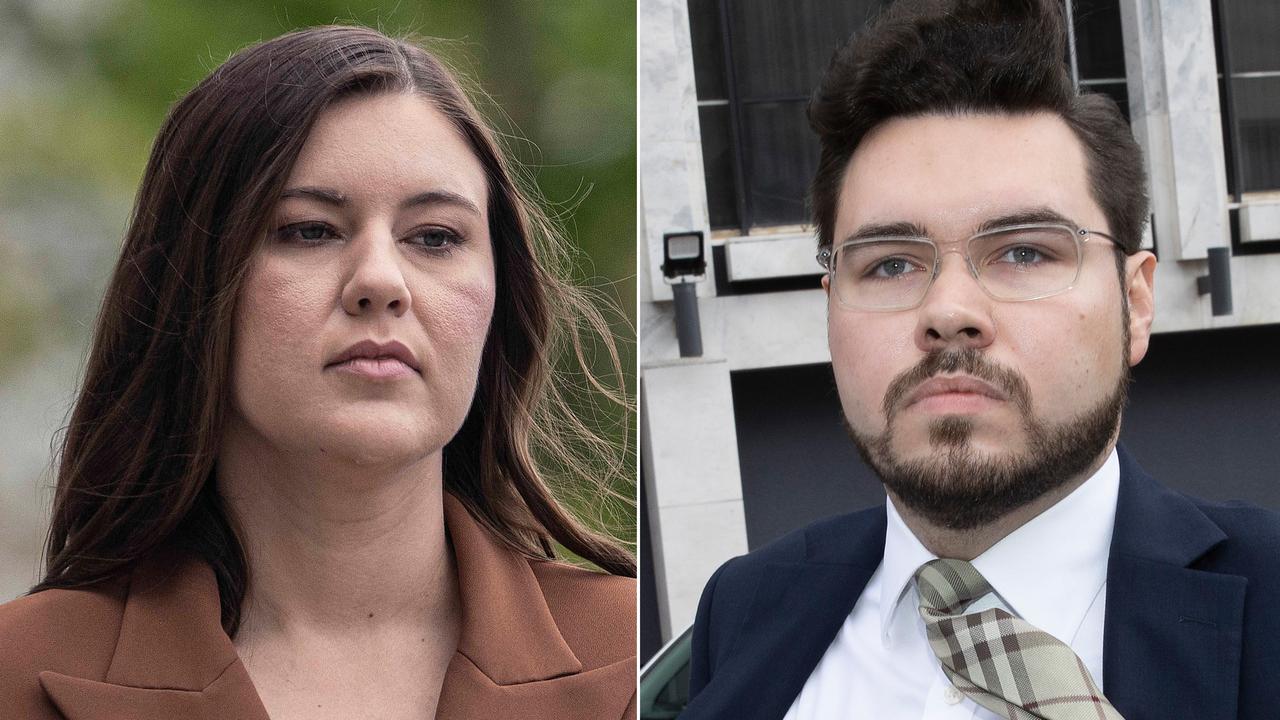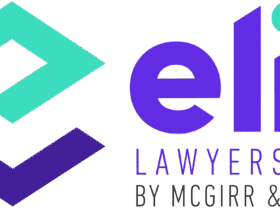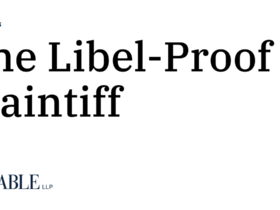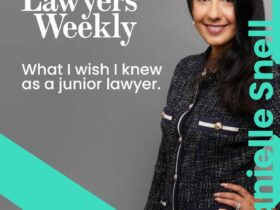In the saga that never ends, the Honourable Justice Lee handed down his costs judgment after a marathon defamation trial where Bruce Lehrmann lost his defamation claim. His Federal Court of Australia claim was dismissed, because, on the balance of probabilities, it was found that he had raped Brittany Higgins. But the qualified privilege defence failed.
In the words of Justice Lee:
“The result is best characterised as the respondents overcoming a misconceived claim in relation to a broadcast because they were able to prove at trial the substantial truth of what the contemporaneous material demonstrates they considered to be the less substantial allegation made in the broadcast.”
Justice Lee’s judgment at the outset makes the wry observation that:
“There are no real winners in this litigation.”
And, the judgment makes the following comment aimed at criticism of the Court by Ten Network solicitor Justin Quill immediately following the handing down of the primary judgment giving judgment for the defendants:
“Contrary to the assertions of Network Ten, the examination of the respondents’ conduct was not devoid of, nor divorced from, reality; nor did it involve picking apart and dissecting the respondents’ conduct by reference to a standard of perfection. Anyone taking the trouble to read the judgment would conclude I did not consider the evaluative assessment required by the statutory qualified privilege defence to be a close-run thing.”
Only one offer of settlement was made, a joint offer by the defendants. Its terms were a “walk away” compromise by which the proceeding be dismissed without any admission of liability and no order as to costs as between the parties. That offer was rejected in less than two hours by Lehrmann.
Relevant law
Costs decisions by Courts involve the exercise of discretion, although the general rule is that unsuccessful parties should pay the costs of the successful parties.
Section 43 of the Federal Court of Australia Rules provides that:
Costs
(1) The Court or a Judge has jurisdiction to award costs in all proceedings before the Court (including proceedings dismissed for want of jurisdiction) other than proceedings in respect of which this or any other Act provides that costs must not be awarded. This is subject to:
(a) subsection (1A); and
(b) section 570 of the Fair Work Act 2009 ; and
(c) section 18 of the Public Interest Disclosure Act 2013 .
(1A) In a representative proceeding commenced under Part IVA or a proceeding of a representative character commenced under any other Act that authorises the commencement of a proceeding of that character, the Court or Judge may not award costs against a person on whose behalf the proceeding has been commenced (other than a party to the proceeding who is representing such a person) except as authorised by:
(a) in the case of a representative proceeding commenced under Part IVA–section 33Q or 33R; or
(b) in the case of a proceeding of a representative character commenced under another Act–any provision in that Act.
(2) Except as provided by any other Act, the award of costs is in the discretion of the Court or Judge.
(3) Without limiting the discretion of the Court or a Judge in relation to costs, the Court or Judge may do any of the following:
(a) make an award of costs at any stage in a proceeding, whether before, during or after any hearing or trial;
(b) make different awards of costs in relation to different parts of the proceeding;
(c) order the parties to bear costs in specified proportions;
(d) award a party costs in a specified sum;
(e) award costs in favour of or against a party whether or not the party is successful in the proceeding;
(f) order a party’s lawyer to bear costs personally;
(g) order that costs awarded against a party are to be assessed on an indemnity basis or otherwise;
(h) do any of the following in proceedings in relation to discovery:
(i) order the party requesting discovery to pay in advance for some or all of the estimated costs of discovery;
(ii) order the party requesting discovery to give security for the payment of the cost of discovery;
(iii) make an order specifying the maximum cost that may be recovered for giving discovery or taking inspection.
Section 40 of the Defamation Act 2005 provides that:
40 Costs in defamation proceedings
(1) In awarding costs in defamation proceedings, the court may have regard to–
(a) the way in which the parties to the proceedings conducted their cases (including any misuse of a party’s superior financial position to hinder the early resolution of the proceedings), and
(b) any other matters that the court considers relevant.
(2) Without limiting subsection (1), a court must (unless the interests of justice require otherwise)–
(a) if defamation proceedings are successfully brought by a plaintiff and costs in the proceedings are to be awarded to the plaintiff–order costs of and incidental to the proceedings to be assessed on an indemnity basis if the court is satisfied that the defendant unreasonably failed to make a settlement offer or agree to a settlement offer proposed by the plaintiff, or
(b) if defamation proceedings are unsuccessfully brought by a plaintiff and costs in the proceedings are to be awarded to the defendant–order costs of and incidental to the proceedings to be assessed on an indemnity basis if the court is satisfied that the plaintiff unreasonably failed to accept a settlement offer made by the defendant.
(3) In this section–
“settlement offer” means any offer to settle the proceedings made before the proceedings are determined, and includes an offer to make amends (whether made before or after the proceedings are commenced), that was a reasonable offer at the time it was made.
Federal Court decision
Justice Lee found that costs had been wasted by the provisions of affidavits which were quite different to the evidence of the deponents at trial:
“…this was a case where the extensive contemporaneous record demonstrates the large gulf between the carefully drafted respondents’ affidavits and the true position as to the immediate and unquestioning belief in Ms Higgins’ account by Mr Llewellyn and Ms Wilkinson (and as to the Project team’s lack of interest in examining the account properly or obtaining contrary accounts). Significant costs in preparing the affidavits by both respondents were wasted… my findings as to what occurred were not only unassisted by this material, but the real approach taken was obscured. The true position only emerged from a review of the extensive transcripts and other contemporaneous records. The picture revealed stands in contrast to numerous representations made in the affidavits.”
Justice Lee substantially accepted the submissions of Network Ten that Mr Lehrmann engaged in an abuse of the Court’s processes, ran a case based on falsities, and put the Network to the cost of defending a baseless proceeding:
” Even in final submissions (see Applicant’s Closing Submissions dated 28 February 2023 (ACS) (at [382A])), Mr Lehrmann persisted in the assertion the evidence could not “sustain a positive finding that any sexual activity took place”. This was Mr Lehrmann’s primary case. Having said this, when it came to the “question of consent”, in respect of which argument was joined in final submissions (see ACS [382A–F]), it was accepted by Mr Lehrmann that if sex did take place, the “bare fact of rape [as imputed by the Project programme] … might be committed simply by being recklessly indifferent to whether or not there was consent” (ACS [386]), but that (ACS [382F]):
… whilst there is a relatively confined period in which any sexual activity might have occurred, there is no cogent and reliable evidence as to Mr Lehrmann’s state of mind at the time of any such sexual activity in relation to his knowledge, belief or advertence as to Ms Higgins’ level of inebriation and ability to consent sufficient to permit the requisite finding of fact necessary to establish that rape or sexual intercourse without consent on the basis of intoxication occurred.
52 What I found (at J [590]–[591]), is that Mr Lehrmann “may well” have turned his mind to consent and been aware Ms Higgins was unconscious when sexual intercourse commenced (but that I was not positively satisfied that Mr Lehrmann had a state of mind of actual cognitive awareness that Ms Higgins did not consent to having sex). In accepting the critical part of Ms Higgins’ evidence that she was not fully aware when sexual intercourse commenced and did not thereafter give her consent, I found (at J [601]) Mr Lehrmann was so intent upon gratification to be indifferent to Ms Higgins’ consent, and hence went ahead with sexual intercourse without caring, one way or another, whether she consented. As anticipated in the ACS, this finding of reckless indifference as to whether there was consent, was sufficient to make out the substantial truth of the fact of rape as that concept was understood by the ordinary reasonable viewer of the Project programme…
Mr Lehrmann defended the criminal charge on a false basis, lied to police, and then allowed that lie to go uncorrected before the jury. He wrongly instructed his senior counsel to cross-examine a complainant of sexual assault, in two legal proceedings, including, relevantly for present purposes, this case, on a knowingly false premise.”
56 Indeed, this was misconduct in the running of his case of such a character, that even if I had not reached the level of satisfaction that Mr Lehrmann raped Ms Higgins (and Mr Lehrmann was therefore entitled to judgment of $20,000), in the counterfactual explained in the judgment, I would have declined to award costs in Mr Lehrmann’s favour. This would have been the appropriate exercise of discretion in those circumstances given Mr Lehrmann had acted in serious breach of his obligations under Pt VB of the FCA Act in advancing a case he knew was false and which occasioned much delay, inefficiency, and increased cost.
57 In the end, it comes down to the order for costs that best does overall justice in the circumstances. On balance, the appropriate exercise of discretion is to make an award that Network Ten recover its costs against Mr Lehrmann on an indemnity basis except for costs incurred in relation to the statutory qualified privilege defence, which will be recoverable (save for costs of the affidavits to which I have referred), on an ordinary or party-party basis.
The Orders were that:
“1. The applicant pay the respondents’ costs of the proceeding on:
(a) the ordinary basis for the costs incurred in relation to the defence of statutory qualified privilege pursuant to s 30 of the Defamation Act 2005 (NSW) (Defamation Act); and
(b) the indemnity basis for any other costs of or incidental to the proceeding (including the costs referred to in Order 2 made on 23 November 2023).
2. Notwithstanding Order 1, no costs are to be recoverable by the respondents against the applicant in relation to the following affidavits:
(a) Affidavit of Ms Lisa Wilkinson affirmed 2 February 2024.
(b) Affidavit of Ms Tasha Smithies sworn 25 January 2024.
(c) Affidavit of Ms Lisa Wilkinson affirmed 16 January 2024.
(d) Affidavit of Ms Lisa Wilkinson affirmed 5 December 2023.
(e) Affidavit of Mr Craig Campbell sworn 18 October 2023.
(f) Affidavit of Mr Angus Llewellyn affirmed 21 September 2023.
(g) Affidavit of Mr Christopher Bendall affirmed 28 July 2023.
(h) Affidavit of Ms Laura Binnie affirmed 28 July 2023.
(i) Affidavit of Ms Lisa Wilkinson affirmed 28 July 2023.
(j) Affidavit of Mr Peter Meakin sworn 28 July 2023.
3. Pursuant to ss 37P(2) and 54A of the Federal Court of Australia Act 1976 (Cth), the quantification of costs payable pursuant to Order 1 (as qualified by Order 2) be referred to a referee for inquiry and report, with the terms of the reference to be settled by the Court at the case management hearing listed at 9:30am on 27 May 2024.”
Conclusion
Given the result in the primary judgment, it was inevitable that Bruce Lehrmann would be ordered to pay costs of the defendants he sued. The real question was whether costs would be awarded on a party and party basis or on an indemnity basis, or something else. This decision awarded costs to the defendants on a hybrid basis where indemnity costs were ordered to be payable for the proceedings, except for costs in relation to the defence of statutory qualified privilege which are only recoverable on the standard basis. Furthermore, no costs are to be recoverable in relation to a number of affidavits filed in the proceedings. The distinction between costs in relation to the defence of statutory qualified privilege and other costs will no doubt be a headache for the taxing officer.
Ultimately, this decision is purely academic: no matter how much Bruce Lehrmann would be ordered to pay costs, they would be in the millions and he would be unable to pay. Bankruptcy appears to be inevitable, subject to the success of any appeal he intends to pursue.
The real effect of this decision could be to commence a trend of judges preferring evidence in chief to be given orally, to avoid the issues Lee J identified with respect to affidavits being carefully drafted and manicured by lawyers. Time will tell.
Posted on Categories Defamation















